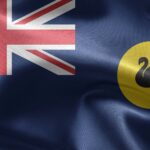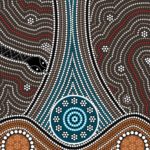Proclamation Day, which falls on the first working day after Christmas, celebrates the founding of the government in South Australia as a British province. South Australia marks Proclamation Day as a public holiday. However, it is the only state in Australia that officially celebrates the day as a public holiday, and many people don’t know why! An Australian survey found two out of three Australians don’t know what Proclamation Day is, so, on this day, it’s a chance for many South Australians, especially students, to learn about it.
History of Proclamation Day
There are an array of Proclamation Days around the globe, as it is the name of the official or unofficial holidays that commemorate an important proclamation. In this case, South Australia, the fourth-largest of Australia’s states and territories, marks Proclamation Day as the day the vice-regal proclamation to establish South Australia as a British province was first read.
South Australia itself was officially established and proclaimed as a province in 1834 as a result of the passing of the South Australia Act by the British Parliament. This authorized King William IV to name South Australia a British province and to arrange for its colonization and government.
In 1836, this act was ratified when King William issued letters patent founding the province. Captain John Hindmarsh — a British naval officer and the first governor of South Australia — announced the establishment of government as he stood beside The Old Gum Tree in the current suburb of Glenelg North. The proclamation also stated the same protection under the law for the local indigenous Australians as well as for the settlers.
An annual ceremony is conducted at The Old Gum Tree site on Proclamation Day, in which the presently elected governor reads out Hindmarsh’s original speech. The tree itself, most likely a red gum, has been dead since 1907. However, in 1963, its outer surface was enclosed in concrete to preserve it. As of 1980, the site has been listed on the South Australian Heritage Register.
In 2015, Australian Native Title and Reconciliation members held a peaceful protest outside the reserve and called for the protection of Aboriginal land and the acknowledgment of Aboriginal people through advisory committees. Proclamation Day still holds a special place statewide for South Australians, with celebrations also including the Bay Sports Festival drawing thousands to Glenelg.
Proclamation Day timeline
South Australia is created after the British Parliament passes the South Australia Act, empowering King William IV to provide for its colonization and government.
Captain John Hindmarsh — the first Governor of South Australia — announces Proclamation Day beside The Old Gum Tree in the present-day suburb of Glenelg North.
The Kaurna people — a tribe of Indigenous Australians who are the traditional owners and custodians of Adelaide and the Adelaide Plains — are vastly outnumbered by British colonists.
An amendment of the Holidays Act, 1910 changes the observance date of Proclamation Day from December 28 to the day following the Christmas holiday, December 27.
Australian Native Title and Reconciliation members call for the protection of Aboriginal land and the acknowledgment of Aboriginal people through advisory committees.
Proclamation Day FAQs
Is Proclamation Day a public holiday in SA?
Yes, it is, in South Australia only.
Why is Proclamation Day celebrated?
Proclamation Day in South Australia celebrates the establishment of government in South Australia as a British province. The proclamation was made by Captain John Hindmarsh beside The Old Gum Tree at the present-day suburb of Glenelg North on 28 December 1836.
Is Boxing Day a public holiday in South Australia?
Yes. The Holidays Act 1910 (SA) prescribes every Sunday to be a public holiday. When 26 December falls on a Sunday, the additional Boxing Day/Proclamation Day public holiday is observed on the following Tuesday, due to Christmas Day occupying the Monday.
Is South Australia a state?
Yes. South Australia is a state in the southern central region of Australia.
Was the rest of Australia colonized?
Yes. Starting from 1788, Australia became a settlement colony of the British.
How To Observe Proclamation Day
Visit Old Gum Tree Reserve
Proclamation Day is an important part of South Australia’s history. A significant occurrence on the day was when the proclamation was announced by Captain John Hindmarsh under the Old Gum Tree. Although the red gum died in 1907, the decayed outer surface has been preserved in concrete, and it’s now a reserve and heritage site, to remember its significance in South Australian history.
Learn about the indigenous Australians
While Proclamation Day is the day on which South Australia was formed, it was a difficult time for the traditional owners and custodians of the area who had lived there for tens of thousands of years. The Kaurna people are a tribe that had to accept colonial domination more quickly than other tribes and, by the 1850s, there were few remaining Kaurna in the Adelaide area. Within a few decades of the British colonization of South Australia in 1836, the Kaurna culture and language had almost been completely destroyed. However, comprehensive records by early missionaries and other researchers have facilitated a contemporary restoration of both language and culture.
Attend the Bay Sports Festival
The Bay Sports Festival is a perfect summer activity to attend on the day. Because Proclamation Day occurs just after Christmas Day, Australians often flock to the beach or participate in outdoor activities to beat the heat of the season. The Bay Sports Festival attracts thousands of people to Glenelg every year. Sports activities, boat races, cruise ships from Port Adelaide, sideshows, and frolicking on the beach are all part of the entertainment on Proclamation Day.
5 Interesting Facts About South Australia
The Festival State
South Australia is often referred to as the “Festival State” because of the large number of festivals that take place throughout the year.
The sunburnt land
The highest recorded temperature in Australia was in 1960 in Oodnadatta in South Australia, when the temperature reached 123.26°F!
The great salty lake
Lake Eyre, in the outback of South Australia, is one of the largest salt lakes in the world.
Sharing borders
South Australia shares borders with all of the mainland states as well as the Northern Territory, obviously only excluding Tasmania.
Land of opals
South Australia’s Coober Pedy mine is the world’s largest producer of opals by mass.
Why Proclamation Day Is Important
It’s important to know the history
An Australian survey found two out of three South Australians do not know why they celebrate Proclamation Day, showing only 36 out of the 111 people surveyed knew why Proclamation Day is commemorated. For students and adults alike, it’s important to know why South Australia was created, how it was created, and the significance behind it.
It’s a public holiday in South Australia
For many South Australians, Proclamation Day is a public holiday where most businesses and schools are closed. It’s also just another excuse to enjoy the great outdoors and the beautiful state that is South Australia during the summer holiday period, between Christmas and New Year’s!
It’s time to think about what it means
Proclamation Day was a celebration of the date the government was established in South Australia as a British province in 1836. This was originally South Australia's 'founding day' celebration until 1910, when they officially unified with other states to celebrate Australia Day on January 26. The date on which Australia Day is celebrated wasn’t always agreed on, but it has become more consistent among all Australians in recent years. Proclamation Day is just one of the dates celebrating Australia’s founding or identity, and, if you are Australian, it’s a time to engage in the conversation about what that means to you.
Proclamation Day dates
| Year | Date | Day |
|---|---|---|
| 2024 | December 26 | Thursday |
| 2025 | December 26 | Friday |











